Fantasia 2019, Day 16, Part 2: Human Lost
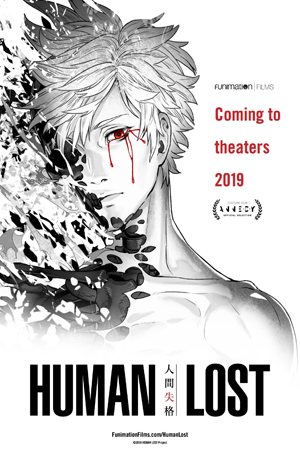 My second film of July 26 was in the big Hall theatre, a science-fiction anime called Human Lost (人間失格). Directed by Fuminori Kizaki, it was scripted by Tou Ubukata based on a novel by Osamu Dazai. The movie’s set in 2036, when advanced nanotechnology has given human beings a lifespan of 120 years but turned Japan into a deeply unequal society, with the wealthy sequestered inside a vast citadel called “the Inside.” Some people, for unclear reasons, metamorphose into monsters: the ‘Human Lost’ phenomenon. A troubled young artist, Yozo Oba (Mamoru Miyano), gets involved with his cyborg friend Takeichi (Jun Fukuyama) when he attempts to break into the Inside, and sets off a complex series of events which bring to light the truth about the Human Lost problem and the future of 2036 — but which also might drive Yozo over the edge of sanity.
My second film of July 26 was in the big Hall theatre, a science-fiction anime called Human Lost (人間失格). Directed by Fuminori Kizaki, it was scripted by Tou Ubukata based on a novel by Osamu Dazai. The movie’s set in 2036, when advanced nanotechnology has given human beings a lifespan of 120 years but turned Japan into a deeply unequal society, with the wealthy sequestered inside a vast citadel called “the Inside.” Some people, for unclear reasons, metamorphose into monsters: the ‘Human Lost’ phenomenon. A troubled young artist, Yozo Oba (Mamoru Miyano), gets involved with his cyborg friend Takeichi (Jun Fukuyama) when he attempts to break into the Inside, and sets off a complex series of events which bring to light the truth about the Human Lost problem and the future of 2036 — but which also might drive Yozo over the edge of sanity.
Osamu Dazai was one of the most celebrated Japanese writers of the first half of the twentieth century; he died in 1948. I have not read his novel No Longer Human (which has the same name in Japanese as Human Lost), but Wikipedia tells me it is considered his masterpiece. Wikipedia also tells me that an alternate and perhaps more faithful translation of the title is “Disqualified From Being Human,” which is closer to the film title. I mention this because a glance at the plot outline suggests the film is otherwise pretty far from its source. More explosions, to start with.
The film takes the idea of a troubled, self-destructive young painter at odds with a stifling society in some counterintuitive directions. Let me put it this way: I had no idea while watching this film that I was watching an adaptation of a twentieth-century novel about alienation and anomie. I can see some connections, even with only the most cursory knowledge of the book. For example, the biotech that keeps people alive forces them to stay alive; suicide is effectively impossible, which is an interesting twist on certain things from the original story. The future society is something of a straitjacket more generally. Some characters have the same names and characteristics as those in the novel. The story’s divided into “notebooks,” which is a structural choice taken from the book.
There’s certainly a kind of ambition at work here. There’s an unusual feel for a violent cyberpunkish dystopia, a strange pacing that puts an emphasis on Yozo rather than on bigger and wilder battle scenes — for better or worse. The problem is, the movie never really manages to find a connection to something recognisable as real life. The action and futuristic plot points are what draw interest, and Yozo’s not charismatic or interesting enough to be intriguing on his own without reference to the larger plot.
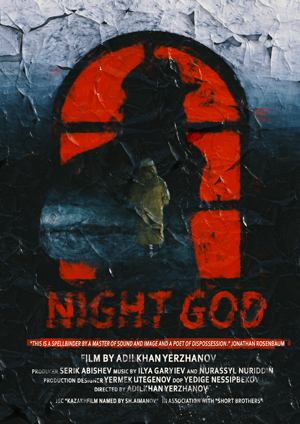 My first film on Friday, July 26, was a Kazakh work playing at the de Sève Cinema. Written and directed by Adilkhan Yerzhanov, Night God is a particular sort of uncompromising. It’s a beautiful picture, but extremely slow, still, and self-consciously meditative. I was deeply moved, for all its studied avoidance of simple dramatic action.
My first film on Friday, July 26, was a Kazakh work playing at the de Sève Cinema. Written and directed by Adilkhan Yerzhanov, Night God is a particular sort of uncompromising. It’s a beautiful picture, but extremely slow, still, and self-consciously meditative. I was deeply moved, for all its studied avoidance of simple dramatic action.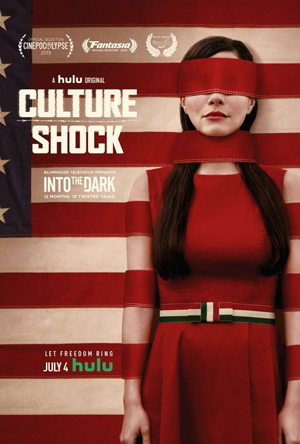 On June 25 I went to the De Sève Theatre for the one movie I’d see that day at the Concordia campus. It was called Culture Shock, and while it’s available on Hulu, this was a rare chance to see it in Canada.
On June 25 I went to the De Sève Theatre for the one movie I’d see that day at the Concordia campus. It was called Culture Shock, and while it’s available on Hulu, this was a rare chance to see it in Canada. 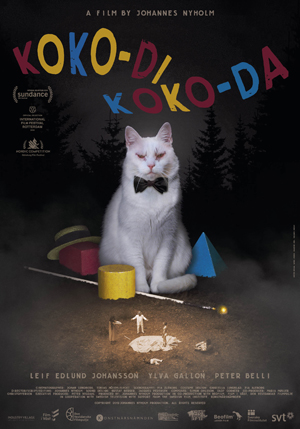 There was only one film I planned to watch on July 24, and that was writer-director Johannes Nyholm’s Koko-di Koko-da. It promised to be a strange movie about characters trying to break out of a time loop, and I settled in at the De Sève Theatre wondering at the horror elements implied by the film’s description in the festival catalogue.
There was only one film I planned to watch on July 24, and that was writer-director Johannes Nyholm’s Koko-di Koko-da. It promised to be a strange movie about characters trying to break out of a time loop, and I settled in at the De Sève Theatre wondering at the horror elements implied by the film’s description in the festival catalogue.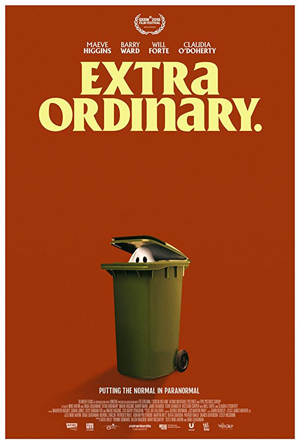 I had one film on my schedule for July 23, an Irish horror-themed comedy named Extra Ordinary. It was preceded by one of the best shorts I saw at Fantasia this year outside of a short film showcase.
I had one film on my schedule for July 23, an Irish horror-themed comedy named Extra Ordinary. It was preceded by one of the best shorts I saw at Fantasia this year outside of a short film showcase.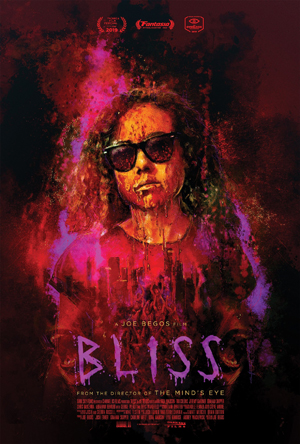 I had been planning to head home after the first movie I saw on July 22,
I had been planning to head home after the first movie I saw on July 22,  On Monday, July 22, I was back at the Hall Theatre for one of the movies I was most anticipating. It was a new live-action manga adaptation from Hideki Takeuchi, director of the
On Monday, July 22, I was back at the Hall Theatre for one of the movies I was most anticipating. It was a new live-action manga adaptation from Hideki Takeuchi, director of the 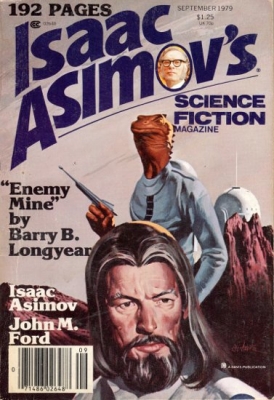
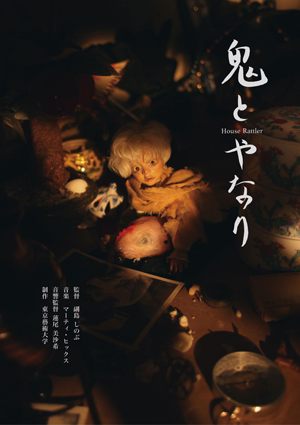 My last screening of July 21 brought me back to the De Sève Theatre for a showcase of animated short genre films from China, Taiwan, Korea, and Japan, a grouping titled “Things That Go Bump In the East.” 11 films in a range of visual styles promised variety. I’d been having good luck with short films at the festival so far, and settled in eager to see what would come now.
My last screening of July 21 brought me back to the De Sève Theatre for a showcase of animated short genre films from China, Taiwan, Korea, and Japan, a grouping titled “Things That Go Bump In the East.” 11 films in a range of visual styles promised variety. I’d been having good luck with short films at the festival so far, and settled in eager to see what would come now.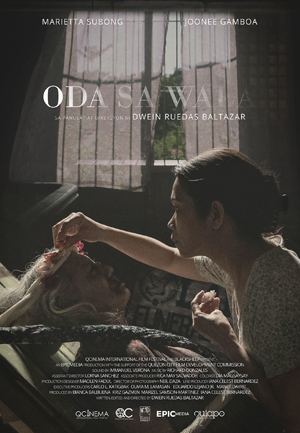 For my third movie of July 21 I wandered back to the Fantasia screening room. There, I settled in with a movie from the Philippines: Ode To Nothing. Written and directed by Dwein Ruedas Baltazar, it follows Sonya (Marietta Subong), a woman no longer young who owns her own funeral home in an unnamed town. Alone except for her father, Rudy (Joonee Gamboa), Sonya tries to keep the funeral home going despite debts to local loan shark Theodore (Dido Dela Paz). Then a body is brought to her for burial under suspicious circumstances. Rather than bury the corpse, though, Sonya begins to speak to it, and comes to think that the body of the old woman is bringing her luck — even to treat the body as her surrogate mother. Is the corpse responsible for the sudden influx of business to the funeral home? And even if it is, can you trust the gifts of the dead?
For my third movie of July 21 I wandered back to the Fantasia screening room. There, I settled in with a movie from the Philippines: Ode To Nothing. Written and directed by Dwein Ruedas Baltazar, it follows Sonya (Marietta Subong), a woman no longer young who owns her own funeral home in an unnamed town. Alone except for her father, Rudy (Joonee Gamboa), Sonya tries to keep the funeral home going despite debts to local loan shark Theodore (Dido Dela Paz). Then a body is brought to her for burial under suspicious circumstances. Rather than bury the corpse, though, Sonya begins to speak to it, and comes to think that the body of the old woman is bringing her luck — even to treat the body as her surrogate mother. Is the corpse responsible for the sudden influx of business to the funeral home? And even if it is, can you trust the gifts of the dead?